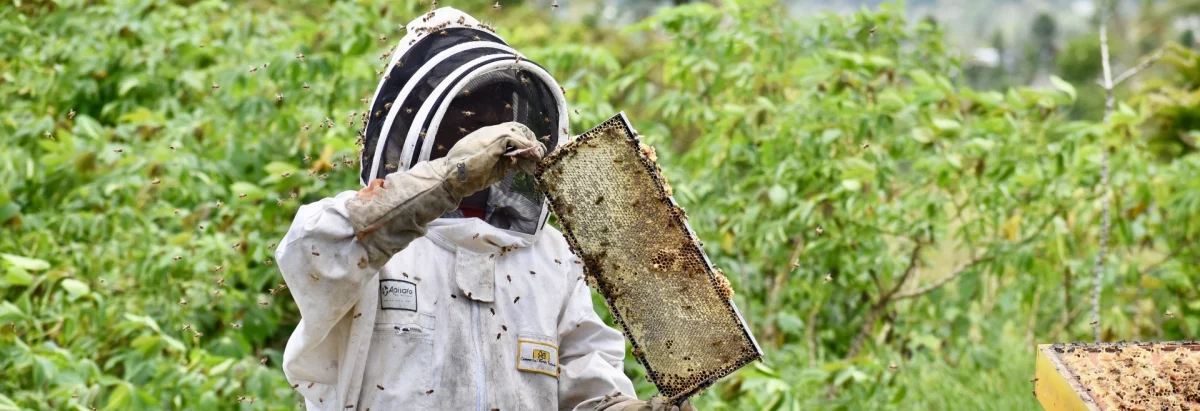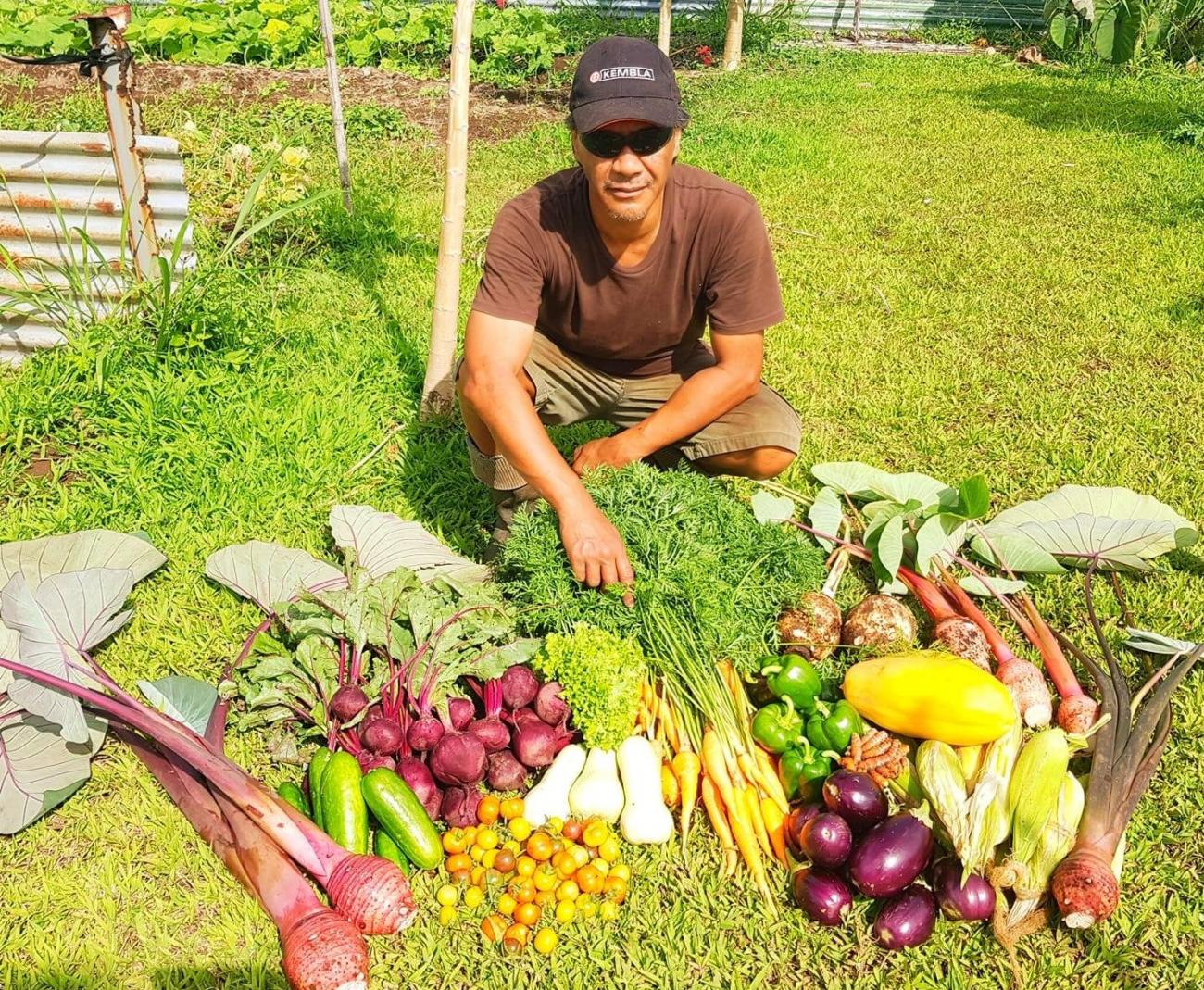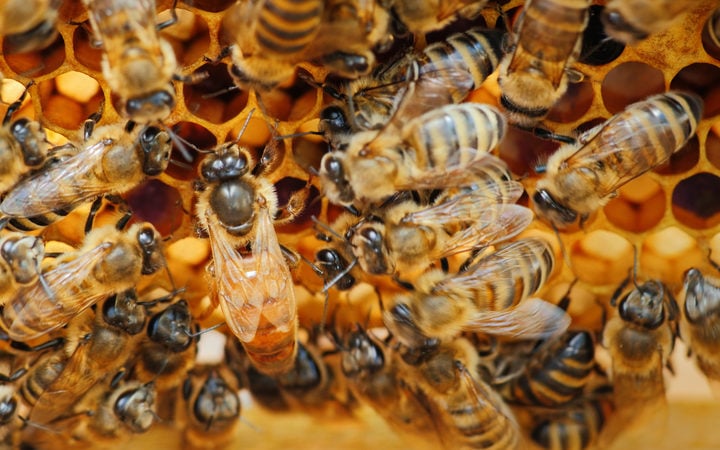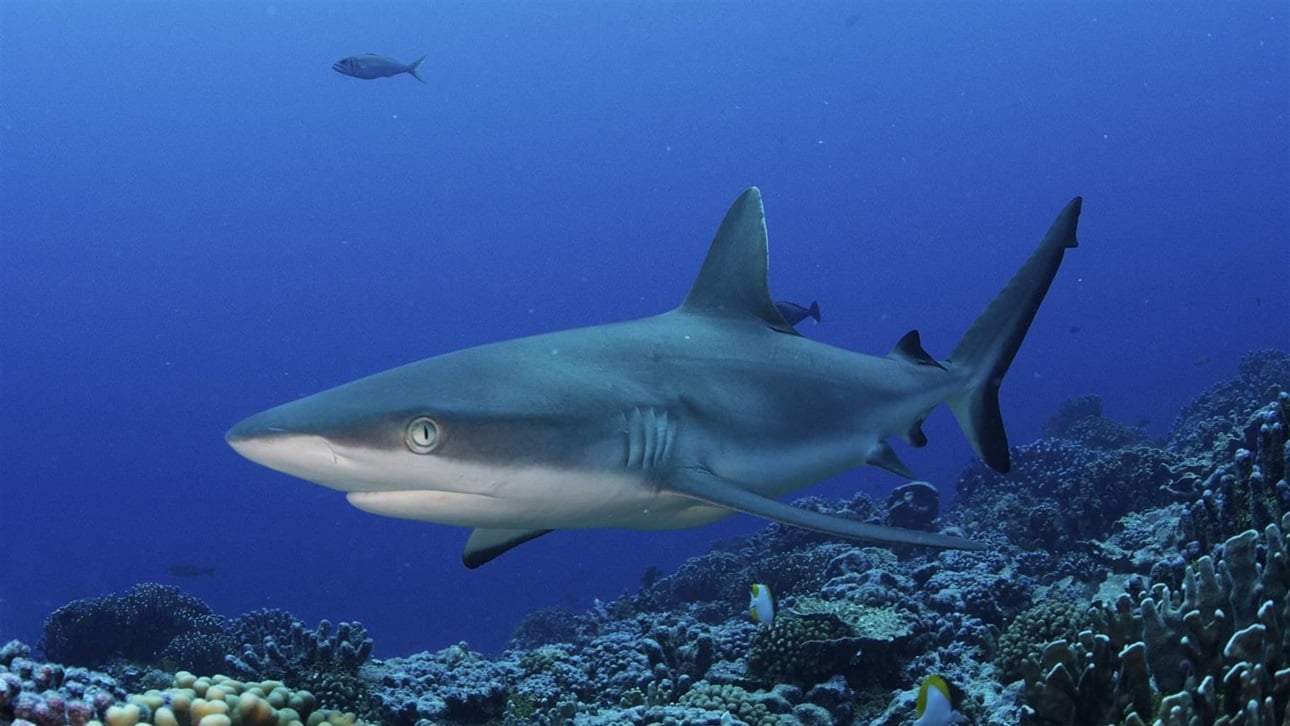Agritourism and beekeeping have weathered the COVID-19 pandemic in the Pacific region to emerge as key strengths of the second phase of the PARDI.
The successor to PARDI 1, which aimed to develop tools, training and capacity to grow agribusiness in the Pacific region, PARDI 2 has identified the agritourism, beekeeping and tilapia fish industries as having the potential for a positive impact on community livelihoods.
“We’re starting to see tangible industry outcomes from PARDI’s long-term investment in mentoring, capacity building in farmer organisations and training support to develop agribusinesses, and this is beginning to influence local policy and strategies,” says Project Manager Dr Inez Mahony from the Australian Centre for Pacific Island Research at the University of the Sunshine Coast.
“The COVID-19 pandemic has delayed progress in some sectors but overall it has forced creativity and diversification, which has always been one of our goals to ensure sustainability.”
Agritourism revives local pride
Agritourism is one of the industries the PARDI 2 project is focusing on, by working in partnership with businesses and applying a mentoring approach to develop their capacity to conduct research and apply the results to improve and sustain livelihoods.
The production of food and fibre as well as opening farms up to holidaymakers is proving to be a sustainable management strategy to offset the loss of international tourists due to the pandemic, says PARDI 2 Agritourism Programme Manager Marita Manley.
“In Fiji, agritourism has opened up spaces for smaller, locally-led businesses – Bulaccino Farm in Fiji is an example of how degraded land can be restored; Namosi Eco Retreat engages guests in planting and harvesting activities as part of their regular activities; and Paradise Taveuni, a dive resort, found that during the COVID-19 pandemic its hobby farming expanded into a fully-fledged part of the business operations and is of interest to guests,” says Manley.
Waitika and Cegu Valley Farm provide beekeeping mentoring and educational experiences to other beekeepers and guests interested in learning more about honey, and Bula Coffee has a network of hundreds of suppliers and has set up a coffee experience to show visitors how the bean reaches the cup.’
Locals return to the land
Listed by the World Bank as the seventh-most-tourism-dependent country, Vanuatu was bracing for significant social and economic impact from border restrictions and the loss of international tourists as a result of the COVID-19 pandemic.
But PARDI 2 Agritourism advisor for Vanuatu, Dr Cherise Addinsall, says while many businesses have experienced financial hardship, locals have displayed typical resilience in adapting and diversifying.
“This resilience comes from the ability to implement “Plan B”, which many Ni Vanuatu describe as a return to the ground and social support systems,” Dr Addinsall explains.
“During the pandemic, many people returned to the land as part of a coping strategy and the country is now building a thriving agritourism sector while at the same time raising the profile of Vanuatu’s cuisine and cultural food and farming heritage, which is empowering Ni Vanuatu.’
Growing agritourism as a sector of the economy requires political will and the support of national marketing agencies, and PARDI 2’s work has already assisted in attracting more donor support for agritourism development.
The piloting of the Produktif Tourism Blong Yumi Initiative and the Agritourism Product Development and Business Support Programme as part of the Vanuatu Sustainable Tourism Strategy (2021-2025) has attracted increased government and donor support for agritourism through the European Development Fund and the New Zealand Ministry of Foreign Affairs as well as organisations such as the Pacific Community, the South Pacific Tourism Organisation and Pacific Island Food Revolution.
“In both Fiji and Vanuatu we are working with the ministries responsible for tourism and national marketing agencies, as well as supporting industry associations, to deliver changes at the policy level that can support the private sector to grow,” says Manley.
“It’s critical that new and expanding businesses are connected to mentors and advisers who understand and can share their knowledge of regulatory, marketing and industry practices.”
Vanuatu’s National Agritourism Coordinator, Votausi Mackenzie-Reur, says 30 agritourism ambassadors are working to strengthen their businesses so that these farms become their primary source of income.
“Their educational and immersive agritourism experience then becomes an added strategy to drive sales of their products and provide an authentic experience to better connect people to Vanuatu’s cultural food heritage,” says Mackenzie-Reur.
“By increasing the pride in our food and how it’s produced we can provide better health outcomes for our people, support livelihoods in our rural areas and raise the profile of Vanuatu’s cuisine internationally to make it an attraction in its own right.”
Value-added bee products
One of the core commodities identified in a PARDI agribusiness masterclass as having potential for the Pacific region was honey production, and the project has rapidly advanced the skills of beekeepers in marketing, branding and labelling of local products.
Dr Cooper Schouten from Southern Cross University’s Bees for Sustainable Livelihoods program says research findings on consumer preferences for honey were provided to industry stakeholders and resulted in improved packaging and marketing.
Dr Schouten leads a four-year ACIAR-supported beekeeping project in Fiji and Papua New Guinea as well as the implementation of PARDI 2’s agribusiness focus in the industry.
He says beekeeping offers a prime opportunity for people of the Indo-Pacific region – it’s profitable and productive in a range of climates, is environmentally friendly and has the capacity for climate change adaptation, and honey doesn’t readily perish so farmers can sell it in times of need.
A key benefit of focusing on the agribusiness element of honey production has been the development and marketing of value-added products and the opportunities for research capacity building for more productive and sustainable beekeeping systems that benefit Fiji, PNG and Australia.
“We’ve had a lot of success with community-based mentorship programs and initiatives to generate new income opportunities in the beekeeping value chain, especially from beeswax, which was previously discarded in the apiary and exacerbated pest and disease issues,” Dr Schouten explains.
“More than 80 percent of participants are now turning beeswax into candles, soaps, body balm, lip balm and other items and some are already selling their products for cash.
“They’re also calculating the time and money spent on these products to ensure they’re not just fun to make but that they’re profitable and provide income diversification within their bee businesses.”
The PARDI 2 honey team has brought together industry stakeholders with researchers and beekeepers to identify solutions to local problems, prioritise areas for development, and improve incomes and participation along the value chain.
“We’re working with beekeeping trainers and extension officers to improve the effectiveness of beekeeping training and create opportunities for more inclusive honey value chains,” Dr Schouten says.
‘We’re trying to not just do more beekeeping but to understand how we can do it better.’
President of the Fiji Beekeepers Association, Nilesh Kumar, says PARDI 2 has provided the local industry with the ability to work together in the same way as bees in a hive.
“The training has shown us that we can have the same number of beehives but expand our incomes by making more value-added products and creating more demand,” says Kumar.
“Coming together to exchange ideas and share knowledge gives us the confidence to do a lot and we learn from the bees – it’s not one bee that produces the honey, they work together.”
Key points
- An ACIAR-supported project is mentoring and training farmers, and building capacity for farmer organisations, to develop agribusinesses in the Pacific region.
- Development of business skills in agritourism and beekeeping is supporting farm business sustainability and profitability.
- Connecting new and expanding businesses to mentors and advisers is building knowledge and facilitating industry development.
This story was originally published at ACIAR on 20 December 2021, reposted via PACNEWS.




